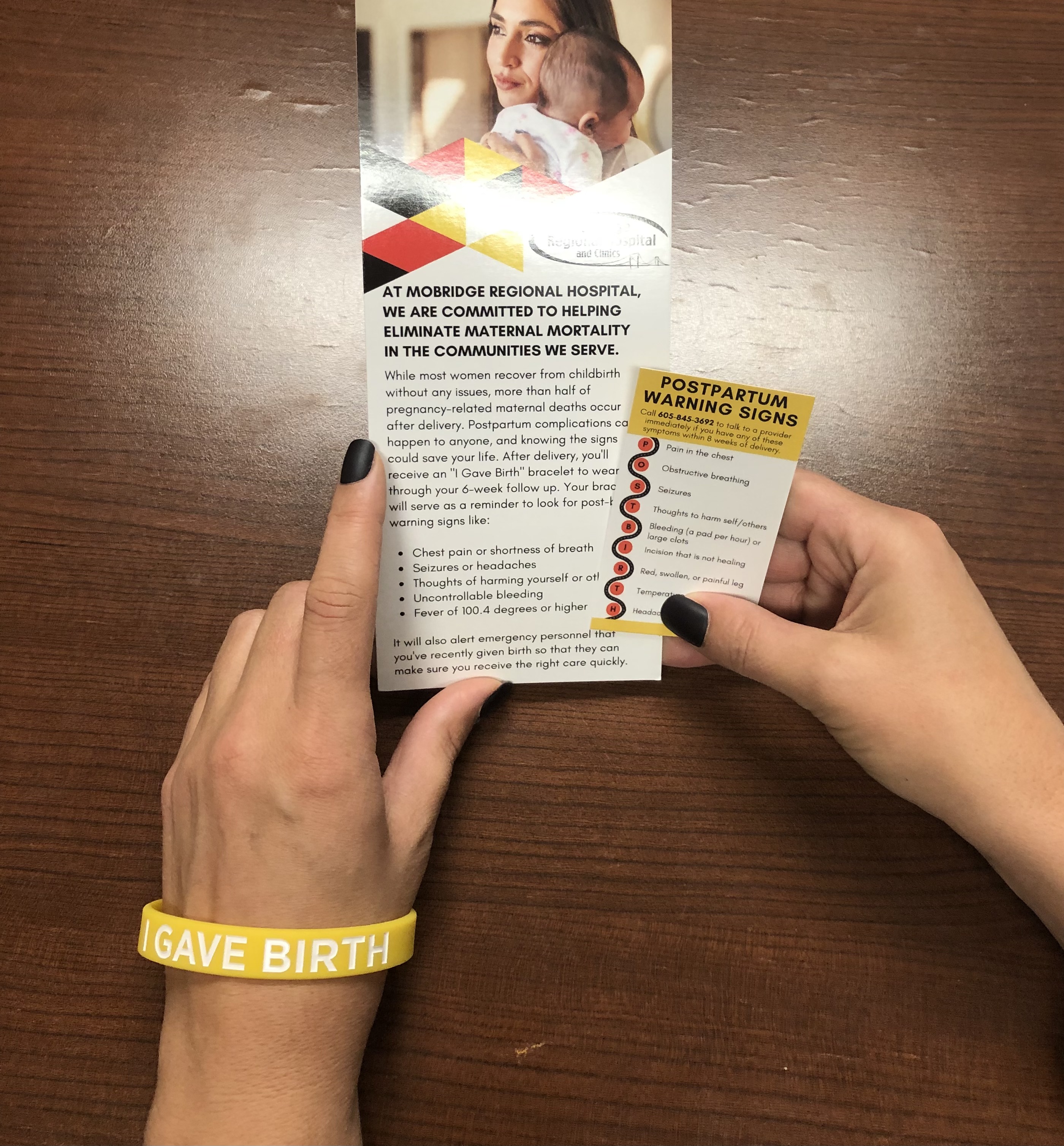News & Events
MRH Pilots Post-Partum Care Program

Mobridge, SD – The team at Mobridge Regional Hospital and Clinics knows developing a more robust and culturally-appropriate patient education program is important for the region we serve. We are constantly working to create the organizational capacity necessary to address this issue.
This November, we will begin piloting a postpartum patient education program—an adapted version of the University of North Carolina’s “I Gave Birth” postpartum care initiative. Between 2017 and 2019, 53% of pregnancy-related deaths occurred 7–365 days postpartum, maternal deaths were highest in rural (non-core) areas like ours, and the most common underlying cause of pregnancy-related deaths nationally between 2017 and 2019 was mental health conditions (CDC, 2019). American Indian/Alaska Native women are twice as likely to die from pregnancy-related complications than white women in the US, and infant mortality rates for AI/AN infants is also higher than should be expected.
Healthy People 2030 challenges our nation’s health care system to increase the proportion of women who get screened for postpartum depression, and the US Preventative Services Task Force (USPSTK) found convincing evidence that counseling interventions, such as cognitive behavioral therapy and interpersonal therapy, are effective in preventing perinatal depression. USPSTK recommends that clinicians provide or refer pregnant and postpartum persons who are at increased risk of perinatal depression to counseling interventions.
In our pilot project, each female patient who has delivered a live infant or stillbirth after 20 weeks gestation will receive education about the importance of physical and mental health care during the postpartum period and an “I Gave Birth” bracelet. Education will include the causes and symptoms of postpartum depression, hemorrhage, infection, and other common postpartum complications, how frequently these issues affect women who have just given birth, and how they can protect and advocate for themselves during this vulnerable period. We will provide resources on mental and behavioral health services available in our community and work to normalize and destigmatize women getting the help they need early in the postpartum period.
The bracelet will serve as a reminder to the new mother, our organization’s medical staff, and external partners to take extra care in looking for post-birth warning signs, including chest pain or shortness of breath, seizures or headache, thoughts of harming themselves or others, uncontrollable bleeding, or fever of 100.4 F or higher.